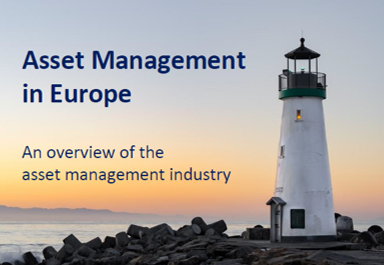Ever since the term “shadow banking” has emerged from the FSB’s working circles in the immediate aftermath of the 2008 global financial crisis[1], our association has consistently argued that its use as a reference to regulated asset management companies and their funds is inaccurate and mis-leading.
Management Companies
EFAMA has been looking at legislative proposals with a direct impact on asset management companies and services, and closely follows any regulatory developments of critical importance to the sector. In addition to issues related to risk management and financial stability, high up on the agenda of EFAMA members is the framework for a prudential regime for Investment Firms (IFD/R), and related implementing measures directly descending from such framework.
EFAMA is focused on minimising the impact of the rules on asset management companies, in particular those holding a limited MiFID license. Key to the sector is the need for proportionality, especially firms that are not authorised to hold client money/securities, or to deal on their own account.
EFAMA's response to the EBA consultation on draft RTS criteria for the identification of shadow banking entities
Distance marketing of consumer financial services – Review of EU rules
EFAMA provided high-level comments to the Commission’s consultation on the potential review of the Directive on Distance Marketing of Consumer Financial Services.
We agree with the Commission’s interpretation that the Directive is seen as a “safety net” for financial services not already subject to product-specific legislation. Fund and asset managers are already subject to various, more stringent and detailed sectoral legislations, such as (but not limited to) UCITS, AIFMD and MiFID as well as the (more recent) Cross-Border Fund Distribution Directives.
EU retail investments: comprehensive strategy to increase retail investor participation required
EFAMA wholeheartedly supports a retail investment strategy that gives EU citizens the necessary tools and the confidence to put their savings to work by investing in capital markets.
EFAMA's response to the EBA consultation on draft RTS criteria for the identification of shadow banking entities
Ever since the term “shadow banking” has emerged from the FSB’s working circles in the immediate aftermath of the 2008 global financial crisis[1], our association has consistently argued that its use as a reference to regulated asset management companies and their funds is inaccurate and mis-leading.
Distance marketing of consumer financial services – Review of EU rules
EFAMA provided high-level comments to the Commission’s consultation on the potential review of the Directive on Distance Marketing of Consumer Financial Services.
We agree with the Commission’s interpretation that the Directive is seen as a “safety net” for financial services not already subject to product-specific legislation. Fund and asset managers are already subject to various, more stringent and detailed sectoral legislations, such as (but not limited to) UCITS, AIFMD and MiFID as well as the (more recent) Cross-Border Fund Distribution Directives.
EU retail investments: comprehensive strategy to increase retail investor participation required
EFAMA wholeheartedly supports a retail investment strategy that gives EU citizens the necessary tools and the confidence to put their savings to work by investing in capital markets.
Asset Management Report 2019
The EFAMA Asset Management in Europe report aims at providing facts and figures to gain a better understanding of the role of the European asset management industry. It takes a different approach from that of the other EFAMA research reports, on two grounds. Firstly, this report does not focus exclusively on investment funds, but it also analyses the assets that are managed by asset managers under the form of discretionary mandates. Secondly, the report focuses on the countries where the investment fund assets are managed rather than on the countries in which the funds are domiciled.






























